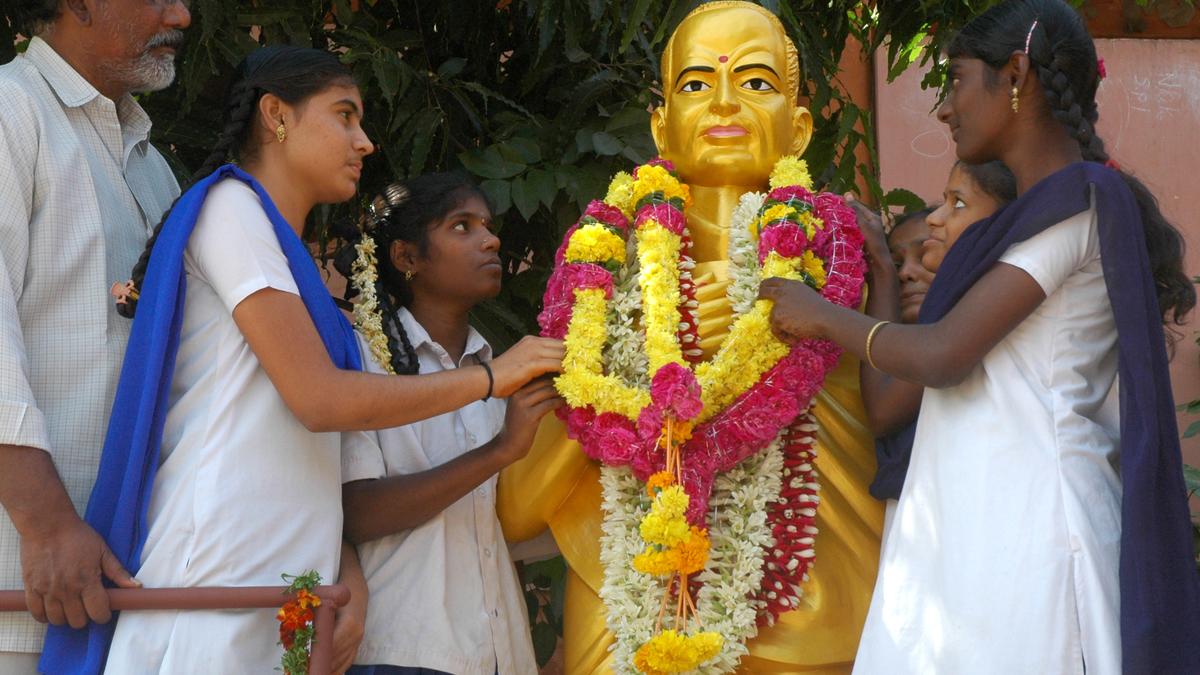
Andhra Pradesh’s tumultuous road to statehood
The Hindu
Potti Sriramulu's sacrifice for a separate Telugu State sparked a linguistic movement that shaped Andhra Pradesh's history.
“I find only one way out. It is to lay down life with no desire, with no hate and with determination. From yesterday I felt that if I delay I should be committing a sin. I am prepared to go through the ordeal of laying down my life.” -Potti Sriramulu.
Author and professor of History and Anthropology at the University of Pennsylvania, Lisa Mitchell, mentions the quote, taken from a letter dated September 15, 1952, written by Potti Sriramulu, in her book Language, Emotion, Politics in South India -The Making of a Mother Tongue.
The letter was written a month before the leader embarked on a fast unto death demanding a separate State for the Telugu people, with Madras as its capital.
Exactly three months later, on December 15, 1952, the fast unto death undertaken by Potti Sriramulu, revered as ‘Amarajeevi’ and the founding father of Andhra Pradesh, tragically ended in his demise after 58 days. A close friend and a disciple of Mahatma Gandhi, Potti Sriramulu had undertaken the fast for other causes earlier, too. He was known to be able to go without food for a few days.
His death sparked widespread protests in many Telugu-speaking pockets of the then Madras Presidency.
“The fatal conclusion caused people in towns and cities as far as 700 kilometres to the north to flock to those sites where news arrived first—the local railway stations. Soon, reports of violence, processions, destruction of railway property, stoppage of trains, and looting began to circulate,” writes Ms. Mitchell in her book.
As per reports, seven people were killed in violence that erupted at different places, including Nellore and Visakhapatnam. On the fourth day after Sriramulu’s demise, Prime Minister Jawaharlal Nehru announced the formation of Andhra Pradesh State, which came into effect on October 1, 1953. He also appointed a State Reorganisation Commission, which submitted its report in 1955 arguing for the formation of States along linguistic lines.











